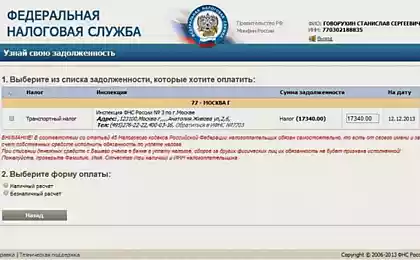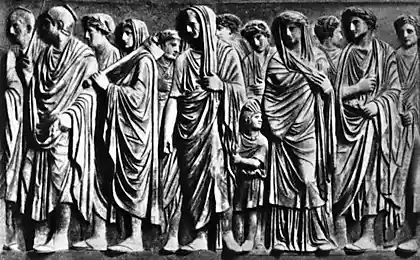1196
Taxes. 10 peaks of absurdity

Taxes are a real inconvenience throughout our lives. Even Benjamin Franklin said: "In our world, there are only two things are inevitable - death and taxes».
We must understand that the governments of all countries at all times tempted to levy taxes on the most common types of assets and activities. There are a whole variety of taxes, which many do not even have heard of. Here are some of them.
1. Tax card
In the XVI century, when the tax was introduced, card game is a very popular pastime after dinner. It is this popularity has led to the king thought of the possibility to enrich themselves at the expense of their subjects. British King James first signed into law, according to which the insignia of the tax should be displayed on the peak ace with the manufacturer's logo and the mark on a playing card will be the proof of tax payment.
2. The tax on candy
Authorities in Illinois in 2009 decided to introduce an exceptional tax entitled "tax on candy." Thus, the tax office of the State noted that the products "containing flour or requiring refrigeration are not considered candy, and will be taxed at a lower rate of taxation, as any other food." It made Chicagoans think twice before you buy a piece of candy, because the tax rate for the candy was 5 times higher than the going rate for all food. This item is attracted to freeze interest in the definition of "candy" as raisins, yogurt-covered, considered candy and pretzel covered with yogurt, already considered conventional foods.
3. Tax athletes
In the United States' tax athletes "is the formal term for income tax levied on athletes visitors to the city or state, who earns money in this jurisdiction. The staff is extremely difficult to keep track of the number of individuals who do business on a temporary basis, and as a result of those on whom the tax is aimed to become wealthy citizens, such as professional athletes. Thus, the first to pay this tax, steel athletes from Chicago.
4. Tax cowardice
This unique tax is levied on those who do not want to fight for the king, then there is a tax levied on the cowardice not just because of cowardice. This tax was known as a shield collection. It was introduced by King Henry the First. Initially, it was relatively low, but King John raised it 4 times in those years when there were no wars. This tax was later also charged with the Knights.
5. Tax hats
The British government has used the tax in relation to men's hats in the period from 1784 to 1811. The tax was introduced during Prime Minister William Pitt the Younger was a method of producing revenue for the government, which relied on the well-being of each individual. It is obvious that the rich citizens were more expensive hats, and the poor can have a cheap one or not have at all. Hats on during production applied special signs indicating the payment of tax.
6. Tax on windows
Tax on the window of 2 shillings for every window in excess of 10 pieces was levied in the UK and Scotland, becoming a major cultural, architectural and social force in the XVIII century. Because of this tax, some residents simply bricked window space. Some residents to preserve the aesthetic appearance of the building, painted on the wall of windows. Tax on windows was introduced during the reign of King William III in 1696
7. Tax beard
King of England, Henry VIII, who himself wore a beard, imposed a tax on beards in 1535 It was a progressive tax levied according to the social status of the owner. Daughter of Henry Elizabeth I re-introduced a tax on beards, taxing every beard "older than two weeks." In Russia, this tax was introduced for a different reason: to make people shave, attaching them to the culture.
8. Tax on water dispensers
This tax is now difficult to find anywhere else, but it still exists in Chicago. On soda tax in banks there is 3%, and machines with soda tax is 3 times higher - 9%. So if you're a fan of soda, you should think twice before traveling to Chicago.
9. Tax on naming children
Names Act in Sweden requires the approval of those names which are given by the Swedish children. Tax Agency Swedish registers names in the country. In 1983 the law was amended to allow men to take the names of their wives or companions, as well as women to take her husband's name. The law specifically states: "Naming can not be approved if it can hurt or cause inconvenience or discomfort for the person who uses it, or if the name is not suitable for some apparent reason".
10. The tax on salt
List of the most bizarre tax would be incomplete without mentioning the famous salt tax in India, against which in 1930 advocated Mahatma Gandhi. Now difficult to understand why salt taxable. However, as a result of this tax has led to a powerful Salt Riot.























